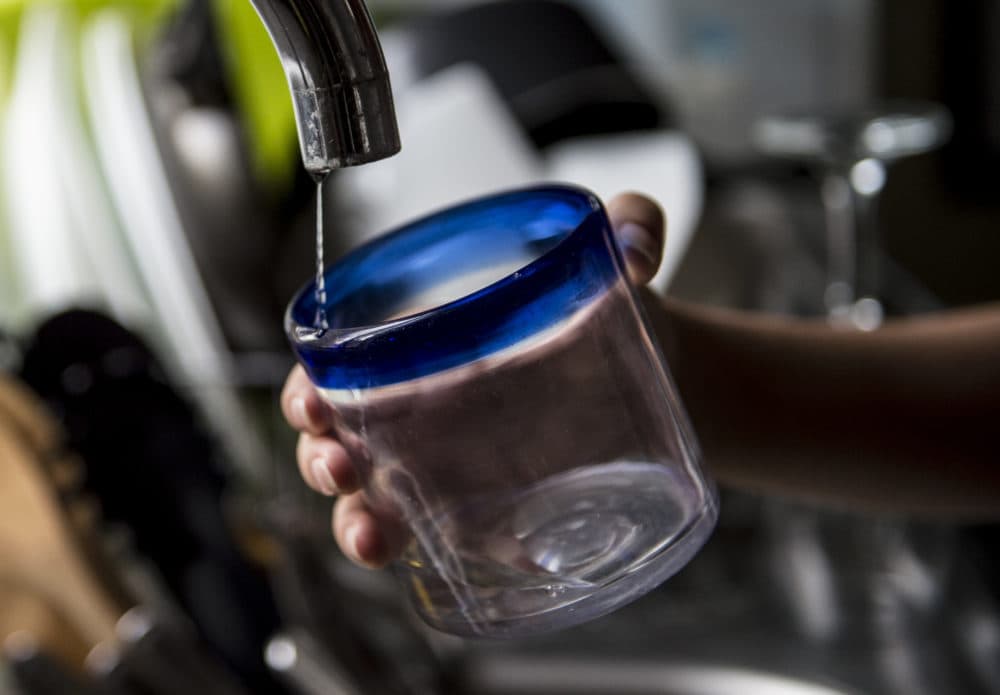Advertisement
When Pandemic Subsides, Phoenix May Reduce Water Flow For Customers Who Don't Pay
Resume
Phoenix officially recorded its hottest summer on record this week with an average high of nearly 108 degrees.
The city has also been a COVID-19 hotspot, and as Congress remains deadlocked on pandemic relief, many people will struggle to pay their rent next month — and probably their utility bills, too.
Like many cities across the country, Phoenix announced in March that it wouldn’t cut off water through the summer if people don’t pay their bills. But now the city is facing some tough decisions.
City leaders are considering an extension to the moratorium on water shut off due to the pandemic, says Kathryn Sorensen, director of the Phoenix Water Services Department.
“Summers here are always hot, but even for us, this one's been pretty bad,” she says. “So I do see us potentially extending probably at least for a few more months, maybe even longer than that. We kind of are playing it day by day and seeing how things go.”
While there have been a higher number of missed payments than usual, Sorensen says most of the utility’s 1.5 million customers are continuing to pay their bills.
“I think they understand that if they can't keep up with their bills now, that a much larger one is coming down the road,” she says. “For example, when the stimulus checks came out, we saw a big surge in payment of past delinquencies.”
The economic collapse triggered by the pandemic has also crippled city and state budgets. Publicly owned infrastructure is covered by bonds in Phoenix, which brings the promise of more revenue during an “abnormally hot” summer, Sorensen says.
“Our promise to our creditors is that we will, in fact, faithfully and responsibly collect revenues from our customers. One of the things that has actually helped our finances, ironically, is that it is so hot here this summer in Phoenix,” she says. “What that means is that our water demands are higher and our revenues are higher as a result.”
Efforts by Democrats to devise a federal moratorium on utility payments have stalled in Congress. While Sorensen says this idea is “well-intended,” she thinks the issue should be left up to state and local leaders who know their communities best.
Even before the pandemic hit, city leaders in Phoenix were trying to address this issue by restricting water flow to households that weren’t paying their bills rather than cutting it off, she says. The city experimented with a device that provides enough water for indoor needs — showering, washing dishes — but restricts the flow needed for other things like outdoor landscaping.
“So normally it takes, for example, a second to fill up a cup of water,” she says. With this device, “it would take more like 15 or 20 seconds to fill a cup of water.”
But some critics say the city is overestimating the amount of water it provides under a restricted flow. One water department employee told the Phoenix New Times anonymously that low flow barely gives people enough water to shower.
Still, Sorensen says restricting water flow is a better alternative to shutting water off completely — the industry norm. She says city leaders have “a civil and moral obligation” to provide water, but “unfortunately, it's an extremely expensive undertaking.”
“When we fail to provide safe, clean water across the community, when we fail to collect enough revenue to do that, when we fail to invest in aging infrastructure, it's really the most vulnerable in our community who ultimately pay the price,” she says. “So every utility director across the country is trying to balance those individual needs with the community needs as best they can.”
Francesca Paris produced and edited this interview for broadcast with Tinku Ray. Samantha Raphelson adapted it for the web.
This segment aired on August 14, 2020.

